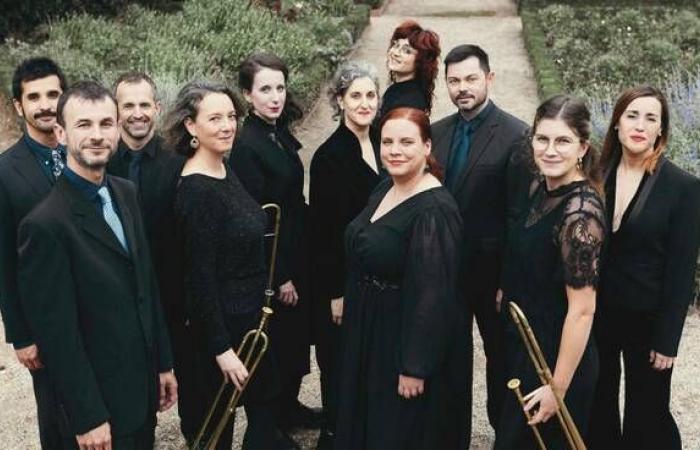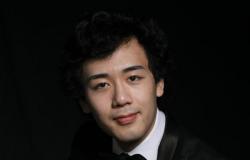Janua is the ancient music program proposed by the Irini Ensemble at the Ravenna Festival on Saturday 15 June, at 9.30 pm, in the Basilica of San Vitale. It could only be the most beloved of the city’s Byzantine basilicas that hosts a musical journey that revolves around a unique period in history, as short as it is little known. It was 1439 when the Council that began in Basel and continued in Ferrara arrived in Florence and attempted to reunite the churches divided centuries earlier by the Schism. With Janua the French ensemble led by Lila Hajosi (and for the first time enriched by medieval trumpets and trombones) chooses the gaze of Guillaume Dufay, who was a direct witness of the events surrounding the Council, and of the contemporary Byzantine composers Janus Plousiadenos and Manuel Doukas Chrysaphes. An invitation to discover the musical treasure of artists who, despite belonging to different shores of the Mediterranean, gave voice to the hopes of reconciliation.
Sunday 16 June, at 10.30 in the Basilica of Santa Maria Maggiore, the new appointment of In templo Domini, the series of Sunday liturgies part of the Festival tradition, sees the Irini Ensemble propose songs of Marian devotion from the Mediterranean, dating back to the 13th and 14th century.
It is possible that the first of the councils in which a then very young Guillaume Dufay participated was that of Constance (1414-18), one of the most significant events in the history of music of the 15th century due to the number of chapel musicians who accompanied the approximately eight thousand prelates and participating clerics. Of course, Dufay dedicated the motet Vasilissa ergo gaude to Cleofe Malatesta, whose marriage to a son of the Byzantine emperor was a consequence of the agreements made in Constance. Another motet in the program – Apostolo glorioso, Dufay’s solo in Italian – written for the installation of Pandolfo as bishop of Patras, also belongs to the period in which Dufay composed for the Malatestas. Instead, it was as a member of the papal chapel that Dufay composed Ecclesia militantis in honor of Eugene IV, under whose pontificate the Council opened by his predecessor Martin V in Basel was transferred first to Ferrara and then to Florence. Here concrete hopes of reconciliation between the Eastern and Western Churches flourished, parallel to the promise of military support against the Ottoman Empire.
While Nuper rosarum flores, which Dufay composed for the consecration of Santa Maria in Fiore in 1436, refers to the Pope’s gift of a golden rose for the high altar, Salve flos tuscae celebrates Florence and its inhabitants. The success of the Florentine negotiations represented by the bull Laetentur Caeli (“Let the heavens rejoice”) with which the reunification was proclaimed, was short-lived: Constantinople would fall in 1453, separating the two Churches even more profoundly. The Cretan Janus Plousiadenos made his pro-Council views evident in many of his treatises and composed a Canon for the Council of Florence, while Manuel Doukas Chrysaphes wrote a Lamentation on the Fall of Constantinople which mirrors another Dufay composition. In her Lamentatio Sanctae Matris Ecclesiae Constantinopolitanae, a mother’s voice laments the suffering of her son, simultaneously evoking the image of the Virgin and the personification of the Church as the mystical mother of the faithful.
Founded in 2014 by Lila Hajosi and based in Marseille, the Irini Ensemble – whose name means “peace” in Greek – has specialized in ancient sacred music from the East and the West, between Rome and Constantinople, and is recognized in international level for his bold and unusual proposals. She has a distinctive sound: with a polymorphic formation and without a soprano, she illuminates the Orthodox repertoire and Renaissance compositions with new, warm and profound colors. Supported by the Fondation Société Générale and the Caisse des Dépôts, the ensemble has an intense activity both in France and in other countries, thanks in particular to the passion and energy of Hajosi, first of all singer but also director of the group, through who gives life and voice to his musicological and aesthetic reflections. As she herself suggests, “there is no easy or difficult music but only ways of presenting it and making it accessible through the passion with which we share it”.
Info and pre-sales: 0544 249244 – www.ravennafestival.org / Tickets: single unnumbered seat 25 Euros (reduced 22 Euros) / Young people at the Festival: under 18 5 Euros; National Youth Card (18-35 years): 50% discount






